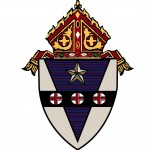 The Archdiocese of Philadelphia released its comprehensive Policies for the Protection of Children and Young People Oct. 31. The policies, most of which have been already in effect, become fully effective Nov. 1 and can be read at the archdiocesan website, www.archphila.org.
The Archdiocese of Philadelphia released its comprehensive Policies for the Protection of Children and Young People Oct. 31. The policies, most of which have been already in effect, become fully effective Nov. 1 and can be read at the archdiocesan website, www.archphila.org.
The policies were developed and provisionally implemented since the release of the 2011 Philadelphia grand jury report on child sexual abuse in the Philadelphia Archdiocese.
They address how allegations of child sexual abuse and violations of the Standards of Ministerial Behavior and Boundaries are received, reported, investigated and reviewed; how victim services are provided and how assignments of archdiocesan priests, those from other dioceses as well as priests of religious congregations are handled.
(See a related story on the Office for Investigations, and an explanation for delays in the cases of suspended priests.)
“No entity in the United States – Catholic or otherwise – seeks more earnestly than the Archdiocese to prevent the sexual abuse of children,” Archbishop Charles J. Chaput said in a statement. “While recently codified these policies have actually guided our practices for more than a year. They’ll be reviewed on a regular basis and updated as circumstances require. I believe that we can be proud of the great effort and sincere determination to protect young people that went into these policies.
“It’s important to remember that even the best policies depend on our earnest dedication to live and enforce them. I’m committed to act accordingly now and in the future.”
[hotblock]
(Read a letter on this issue by Archbishop Chaput to all the faithful of the Archdiocese.)
While the policies are available in full through the archdiocesan website, there is also a short executive summary that lists key changes from past practice. These include:
• The creation of a separate Office of Investigations to ensure immediate referral of a complaint to law enforcement. Cooperation with appropriate public authorities is mandated, and interference with law enforcement is prohibited. This office is headed by Al Toczydlowski, a former Philadelphia assistant district attorney with 30 years of prosecutorial experience. It is staffed with highly experienced law enforcement personnel trained in such investigations.
• Every allegation is logged and a file opened. Each allegation against clergy is promptly reviewed to determine whether interim restrictions on ministry should be imposed.
• Referral of all complaints that involve minors to the Archdiocesan Review Board. The review board is an advisory body made up of Catholics and non-Catholics that reviews completed investigations and makes recommendations to the Archbishop on each case.
• In a change from past practice, all complaints against clergy, even those solely in violation of the Standards of Ministerial Behavior and Boundaries are sent to the Review Board. The standard used by the board to review cases has been clarified and codified, and the board has been expanded to include a spectrum of people with expertise in sexual assault trauma, victim service and law enforcement.
• The codification of steps to ensure that any cleric from outside the diocese or from a religious order seeking to minister in the Archdiocese is screened to guarantee the protection of children.
In addition to the above steps the Archdiocese has provided immediate mandatory reporter training through the Bucks County Network of Victim Assistance. The program goes above and beyond state law by extending to the more than 35,000 archdiocesan employees and volunteers, and all are required to undergo background checks.
All archdiocesan personnel are expected to comply with all applicable civil laws with respect to the reporting of allegations of sexual abuse of minors to civil authorities and must cooperate in their investigation.
Under the revised policies, the Archdiocese has drawn a strict division between victim assistance and the investigative process by separating these functions into independent offices.
This allows the victim assistance efforts to focus exclusively on the needs of the victims. Leslie Davila, who heads these efforts, was formerly with the Philadelphia District Attorney’s Office and has worked for more than 15 years with victims of crime, including victims of sexual assault.
“I pray and do believe that the lessons of the past year have made our Church humbler, wiser and a more vigilant guardian of our people’s safety,” Archbishop Chaput said. “That is our commitment today, tomorrow and permanently.”
PREVIOUS: Investigator explains reason for delays in suspended priests’ cases
NEXT: Clerical changes announced



Share this story